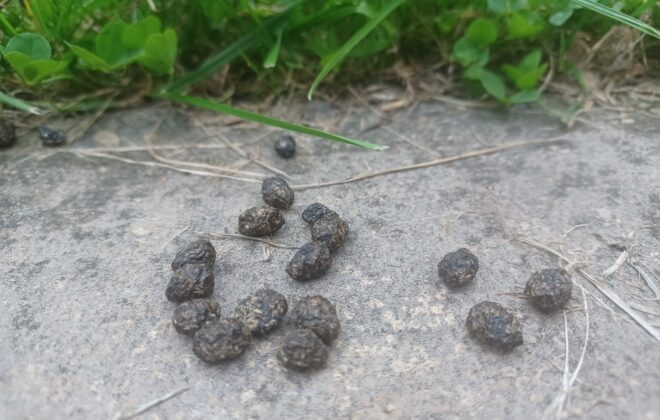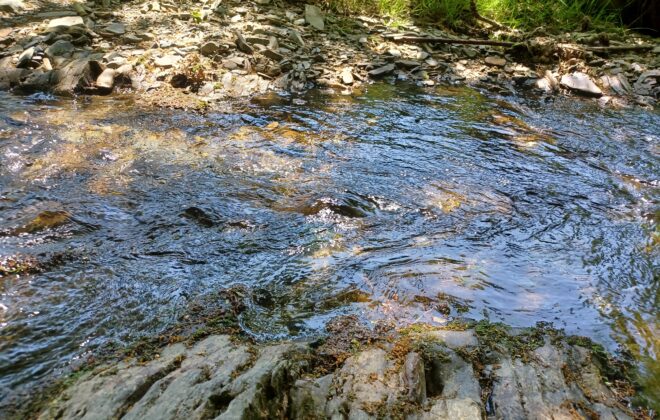Small actions – 50% by 2030
I haven’t written much or thought much of any depth recently, which feels strange for me.
Instead, I’ve been having the windows fixed to keep out the draft. I’ve had the loft insulated to keep the house warmer. I’ve been finding out about how to insulate exterior walls in old houses. I’ve researched air flow heat pumps, ground source, water source and old fashioned oil.
The other day when the boiler broke on a very cold night I got all excited because we could stay warm by using portable electric heaters powered by the solar panels and fires fuelled by wood coppiced from the garden.
I usually have soft fruit for breakfast and up until last summer, bought it from overseas, wrapped in plastic, from supermarkets. But up until 2 weeks ago I was eating fruit that I had picked and apples which I got from a neighbour and have kept in cold store through the winter. Soon the rhubarb will be strong enough to pick which means that there has only been a month or less where I have been buying soft fruit.
All of this may seem boring and prosaic, maybe mundane, but I realised that it matters to me because I’m living increasingly in integrity with my desire to tread more likely on the earth and to do what I can to pass it on to my children in a healthier state than it currently is.
It is easy to focus on what we can’t change, or haven’t yet changed: I live in an old house with uninsulated exterior walls, I still do drive and I still use some oil for for a heating and hot water. But when I was listening to my favourite Podcast Outrage and Optimism, they reminded me that the target is to have reduced our carbon footprint by 50% by 2030 and I realise that I am well on the way to that.
They also pointed out that it can feel that we can’t do very much in a year, but this assumes we take a short term view. However, if we look at the differences we can make before 2030, actually there is time to make some of the choices that we all need to make.
Which gives me hope because we do all need to reduce our carbon footprint by 50% (or more) by 2030 whether that’s by reducing the amount of meat you eat, the amount you drive or how you heat your home.
Not only are these changes good for the planet but of course they are good for us because without clean air, clean water and healthy soils and biodiversity, we face a very bleak future.
Living in integrity with what we know to be the right thing to do, reduces the amount of cognitive dissonance and stress we feel and increases our sense of empowerment.
We might feel that we can’t control the decisions that governments are making (except by electing wisely) but we can all control how we spend our money, how often we drive, how often we fly, and where we buy our clothes. These choices are small but powerful and they matter.
Even if our generation are not talking about climate change, the younger generation are feeling anxious and stressed about it.
One peer reviewed article in Nature, said ‘ ‘climate anxiety’ are considered an adaptive response to a real threat‘ [my bold] and another from 2021 article in the Lancet drew on ‘10 000 children and young people (aged 16–25 years) in ten countries (Australia, Brazil, Finland, France, India, Nigeria, Philippines, Portugal, the UK, and the USA; 1000 participants per country)’ and found:
Respondents across all countries were worried about climate change (59% were very or extremely worried and 84% were at least moderately worried). More than 50% reported each of the following emotions: sad, anxious, angry, powerless, helpless, and guilty. More than 45% of respondents said their feelings about climate change negatively affected their daily life and functioning, and many reported a high number of negative thoughts about climate change (eg, 75% said that they think the future is frightening and 83% said that they think people have failed to take care of the planet). Respondents rated governmental responses to climate change negatively and reported greater feelings of betrayal than of reassurance. Climate anxiety and distress were correlated with perceived inadequate government response and associated feelings of betrayal.
We can’t pretend this isn’t already happening. We can’t pretend it isn’t already dangerous, but by acknowledging that things have to change and making practical steps towards those changes, we increase security and health, not only future generations but for our immediate descendants.
It is also the right thing to do. For us. Right now. I feel a sense of satisfaction when I know that my house is becoming more efficient that my garden is growing more food, that I’m buying less and polluting this world that I love less.
The immediate benefits are that I have a warmer house, lower bills, fresher fruit that tastes better.
What’s not to like?
If you enjoyed reading this please share it with friends. You might also be interested in talking to me about coaching , or maybe try some of my online courses (some are free), or treat yourself to a climate protecting pamper with vegan friendly, organic Tropic which supports the planting of forests and education in deprived areas.
Thanks for being here.
Julie
Tags In
Related Posts
Categories
- Be Here Now (110)
- Education (40)
- Endings (58)
- environment (96)
- Inspiration (111)
- Podcasts and videos (49)
- Psychology and Emotions (147)
- Relationships and Family (150)
- Spirituality (70)
- stories and poems (95)
- Thinking Differently (186)
- Uncategorized (8)
- Well-being (106)
- Women (80)
- Work (42)



